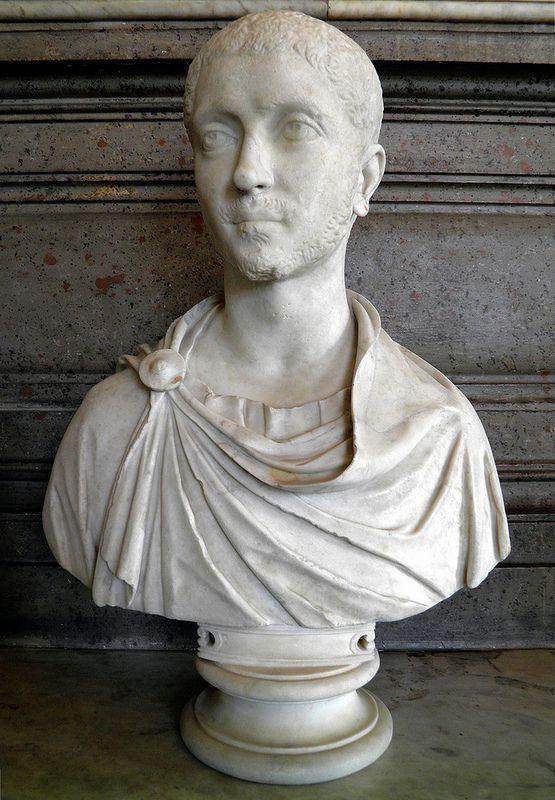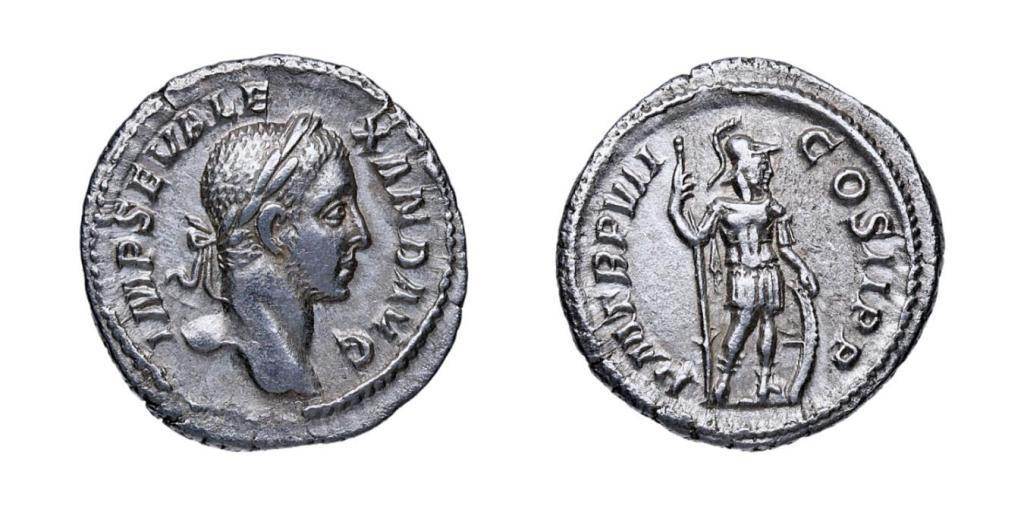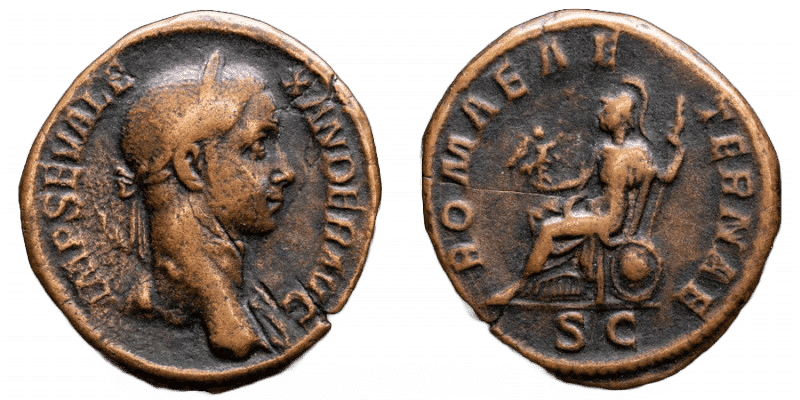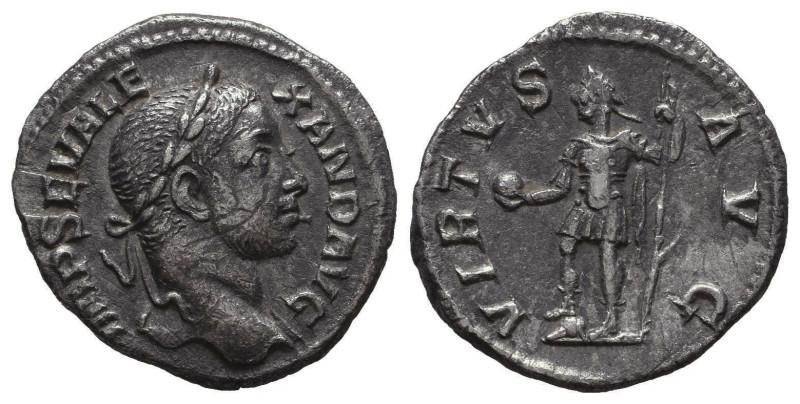| Predecessor | Elagabalus |
| Successor | Maximinus I Thrax |
| Born | 1 October 208, Arca Caesarea, Phoenicia |
| Died | 21/22 March 235 (aged 26), Moguntiacum, Germania Superior |
| Spouse | Sallustia Orbiana Sulpicia Memmia |
| Children |
|
| Father | uncertain |
| Mother | Julia Avita Mamaea |
His Story
Severus Alexander was a Roman emperor who ruled from 222 to 235 AD. He was the last emperor of the Severan dynasty, which had been founded by his great-grandfather Septimius Severus in 193 AD. He was also one of the youngest emperors in Roman history, ascending to the throne at the age of 13 after the assassination of his cousin and adoptive father Elagabalus.
Severus Alexander was born in 208 AD in Phoenicia, a province in the eastern part of the Roman Empire. His original name was Bassianus Alexianus, but he later changed it to Marcus Aurelius Severus Alexander to honor his ancestors and his adoptive father. His mother was Julia Mamaea, a niece of Julia Domna, the wife of Septimius Severus. His grandmother was Julia Maesa, a sister of Julia Domna and a powerful and influential woman who orchestrated the rise and fall of Elagabalus and Severus Alexander.
Elagabalus became emperor in 218 AD after a revolt by the soldiers in Syria, who proclaimed him as the son of Caracalla, another Severan emperor who had been murdered in 217 AD. Elagabalus was actually a distant cousin of Caracalla, but he claimed to be his son through a divine conception by the sun god Elagabal, whom he worshipped and tried to impose on the Roman people. Elagabalus was also notorious for his sexual scandals, religious innovations, and extravagant lifestyle, which alienated many Romans, especially the senators and the soldiers.
In 221 AD, Julia Maesa persuaded Elagabalus to adopt Severus Alexander as his heir, hoping to secure the succession and appease the discontented factions. However, Elagabalus soon became jealous of his cousin’s popularity and tried to eliminate him several times. In 222 AD, the Praetorian Guard, the elite troops who guarded the emperor, rebelled against Elagabalus and killed him and his mother Julia Soaemias. They then proclaimed Severus Alexander as emperor and threw the bodies of Elagabalus and his mother into the Tiber river.
Severus Alexander’s reign was marked by a contrast with his predecessor’s. He restored the traditional Roman religion and cults, respected the Senate and its privileges, reduced taxes and spending, promoted education and culture, and sought peace and diplomacy with foreign enemies. He was also influenced by his mother Julia Mamaea, who acted as his regent and advisor until her death. He married twice: first to Sallustia Orbiana, whom he later divorced and exiled after her father was accused of treason; and second to Sulpicia Memmia, a noblewoman from a distinguished family.
However, Severus Alexander also faced many challenges and crises during his reign. He had to deal with several usurpers and rebellions in different parts of the empire, such as in Britain, Africa, Syria, and Germany. He also had to confront the rising threat of the Sassanid Empire, a new Persian dynasty that had replaced the Parthian Empire as Rome’s main rival in the east. In 230 AD, the Sassanid king Ardashir I invaded Mesopotamia, a Roman province that bordered Persia. Severus Alexander launched a counterattack in 232 AD, but he failed to achieve a decisive victory and had to retreat after suffering heavy losses.
The most serious threat to Severus Alexander’s rule came from the Germanic tribes that lived beyond the Rhine and Danube rivers. These tribes had been raiding and invading Roman territory for decades, but they became more aggressive and organized in the 230s AD. In 233 AD, Severus Alexander moved to Mainz in Germany to deal with them. However, instead of fighting them directly, he tried to negotiate peace treaties and pay them off with money and gifts. This strategy angered many Roman soldiers, who saw it as a sign of weakness and cowardice.
In 235 AD, while Severus Alexander was still in Mainz, a group of soldiers mutinied and proclaimed their commander Maximinus Thrax as emperor. Maximinus Thrax was a Thracian soldier who had risen through the ranks by his bravery and strength. He was also popular among the troops for his harsh discipline and military prowess. The mutineers marched on Mainz and attacked Severus Alexander’s camp. Severus Alexander tried to flee with his mother Julia Mamaea, but they were both captured and killed by their own soldiers on March 21 or 22. Their






